
Ikeja: The Heartbeat of Lagos
Welcome to Ikeja, the vibrant capital of Lagos State and a bustling hub of commerce, culture, and entertainment. This neighborhood is a perfect blend of modernity and tradition, making it an ideal destination for tourists eager to experience the dynamic spirit of Lagos. Ikeja is home to a variety of attractions that cater to different interests. From the thriving computer village—a tech lover's paradise of gadgets and electronics—to the serene Johnson Jakande Tinubu Park, where you can escape the urban rush and enjoy a peaceful afternoon. The neighborhood's rich history is reflected in its colonial architecture, while contemporary landmarks like the Ikeja City Mall offer a glimpse into its cosmopolitan side. Food enthusiasts will find Ikeja to be a culinary delight, with a plethora of dining options ranging from local street food vendors to upscale restaurants offering both Nigerian and international cuisines. The nightlife here is equally exciting, with numerous bars, lounges, and live music venues that keep the city alive long after the sun sets. Ikeja's strategic location also makes it a convenient starting point for exploring other parts of Lagos, with excellent transportation links to the rest of the city.
Local tips in Ikeja
- Visit Computer Village early in the morning to avoid the crowds and get the best deals on electronics.
- Take a leisurely stroll in Johnson Jakande Tinubu Park to experience a serene side of Ikeja.
- Sample local street food at Kemi's Place to get an authentic taste of Nigerian cuisine.
- Use ride-hailing apps like Uber or Bolt for convenient and safe transportation around Ikeja.
- Explore the Ikeja City Mall for a mix of shopping, dining, and entertainment options under one roof.
Ikeja: The Heartbeat of Lagos
Welcome to Ikeja, the vibrant capital of Lagos State and a bustling hub of commerce, culture, and entertainment. This neighborhood is a perfect blend of modernity and tradition, making it an ideal destination for tourists eager to experience the dynamic spirit of Lagos. Ikeja is home to a variety of attractions that cater to different interests. From the thriving computer village—a tech lover's paradise of gadgets and electronics—to the serene Johnson Jakande Tinubu Park, where you can escape the urban rush and enjoy a peaceful afternoon. The neighborhood's rich history is reflected in its colonial architecture, while contemporary landmarks like the Ikeja City Mall offer a glimpse into its cosmopolitan side. Food enthusiasts will find Ikeja to be a culinary delight, with a plethora of dining options ranging from local street food vendors to upscale restaurants offering both Nigerian and international cuisines. The nightlife here is equally exciting, with numerous bars, lounges, and live music venues that keep the city alive long after the sun sets. Ikeja's strategic location also makes it a convenient starting point for exploring other parts of Lagos, with excellent transportation links to the rest of the city.
Iconic landmarks you can’t miss
Dimplediva_scent
Discover the heart of Lagos at Tafawa Balewa Square, a historical landmark steeped in national pride and vibrant local culture.
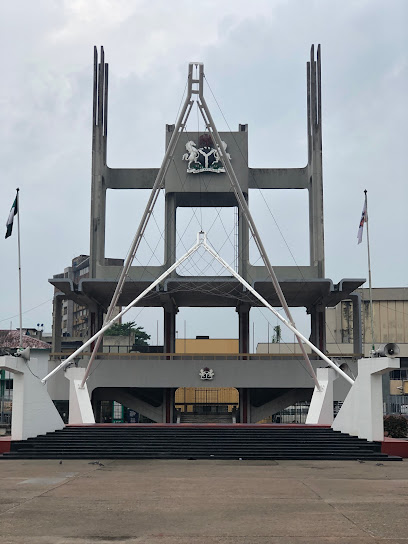
Ndubuisi Kanu Park
Experience the tranquility and vibrant culture at Ndubuisi Kanu Park, a lush oasis in Ikeja, perfect for relaxation, recreation, and community events.
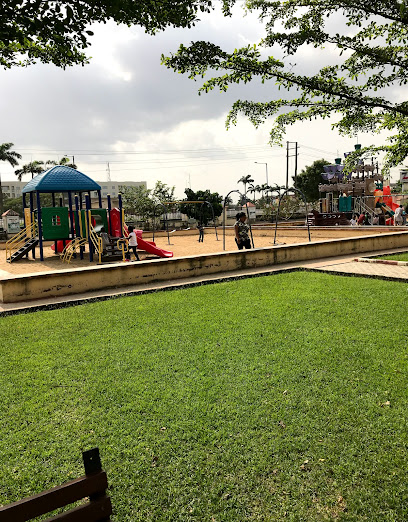
Johnson Jakande Tinubu (JJT) Park
Experience the serene beauty and recreational charm of Johnson Jakande Tinubu Park in Ikeja, a perfect escape for nature lovers and families.
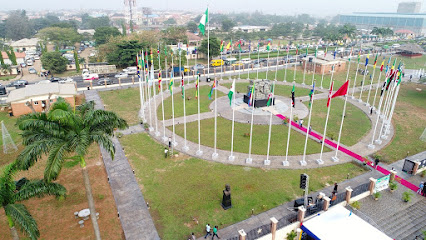
Freedom Park Lagos
Immerse yourself in history and nature at Freedom Park Lagos, a serene national park and cultural hub in the heart of Lagos Island, Nigeria.
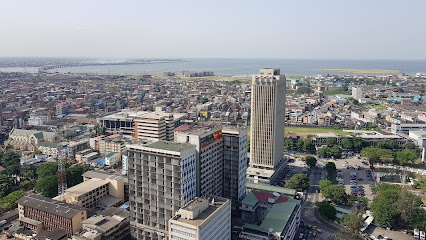
Fela's Shrine Ikeja
Discover the vibrant heart of Lagos at Fela's Shrine, where the legacy of Afrobeat legend Fela Kuti lives on through electrifying performances and rich cultural experiences.
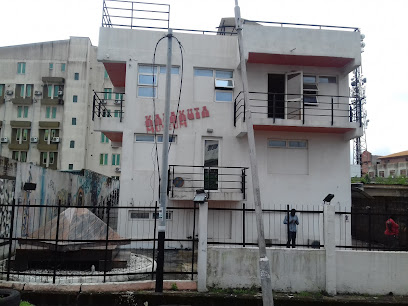
kalakuta museum
Delve into the life of Fela Kuti and the vibrant history of Nigeria at Kalakuta Museum, a must-visit for music and culture enthusiasts.

Jaekel House
Explore Jaekel House, a historical museum in Lagos that showcases Nigeria's captivating past through well-preserved artifacts and stunning architecture.
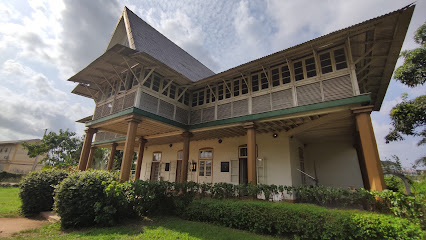
Fela Shrine Alausa, Ikeja.
Discover the vibrant world of Afrobeat at Fela Shrine Alausa in Ikeja, where music, culture, and history intertwine in the heart of Lagos.
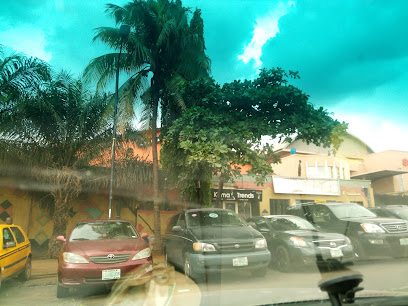
The Palace of Baale of Omole Land
Explore the Palace of Baale of Omole Land, a historical landmark in Ikeja, rich in Yoruba culture and tradition, offering a glimpse into Nigeria's vibrant heritage.
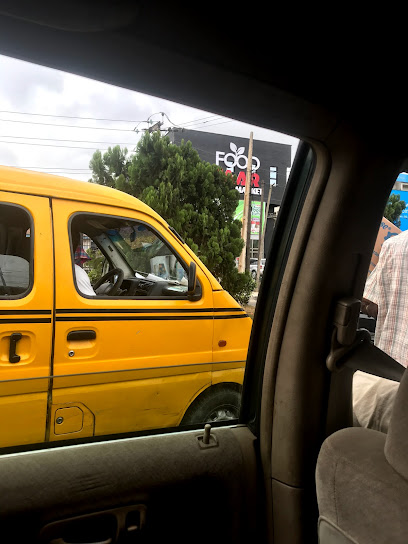
Fela Kuti Effigy
Discover the vibrant legacy of Fela Kuti at the iconic effigy in Ikeja, a cultural landmark that embodies the spirit of Afrobeat music and Nigerian heritage.
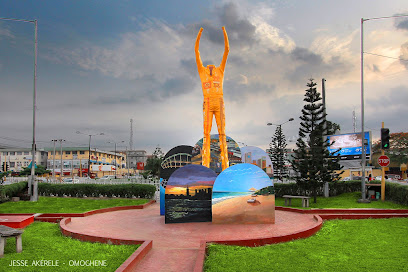
Unmissable attractions to see
Dimplediva_scent
Explore the rich history and cultural significance of Tafawa Balewa Square, a landmark that celebrates Nigeria's journey to independence.
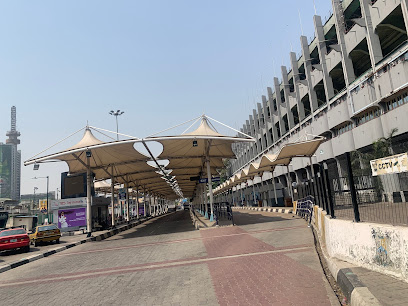
Ndubuisi Kanu Park
Discover the peaceful oasis of Ndubuisi Kanu Park in Ikeja, Lagos, where lush greenery and recreational activities await every visitor.
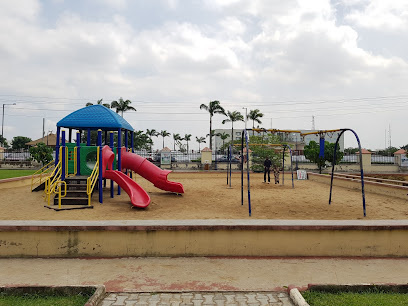
Johnson Jakande Tinubu (JJT) Park
Experience the tranquility of nature in the heart of Ikeja at Johnson Jakande Tinubu Park, a perfect escape for relaxation and recreation.
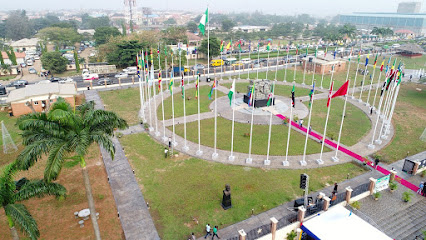
Fela's Shrine Ikeja
Experience the vibrant culture of Nigeria at Fela's Shrine, the iconic venue celebrating the legacy of Afrobeat legend Fela Kuti.
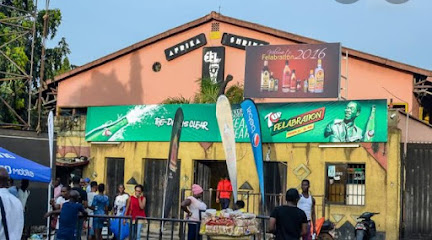
kalakuta museum
Discover the legacy of Afrobeat at Kalakuta Museum, a vibrant tribute to Fela Kuti's life and music in the heart of Lagos.
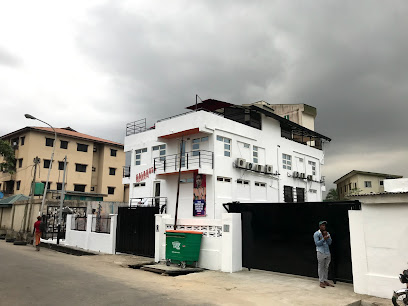
Jhalobia Landscaping Company and Botanical Garden in Lagos,Nigeria
Discover tranquility at Jhalobia Landscaping Company and Botanical Garden in Lagos, Nigeria - where nature's beauty meets expert landscaping.
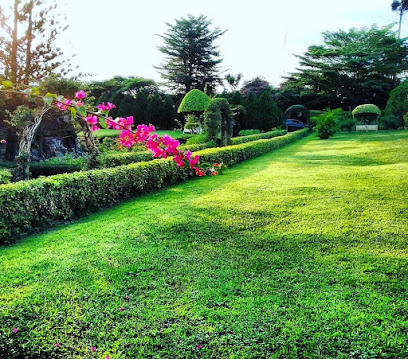
Dr Oluyomi Abayomi Finnih Recreational Park
Experience tranquility and natural beauty at Dr Oluyomi Abayomi Finnih Recreational Park, a serene retreat in the bustling city of Lagos.
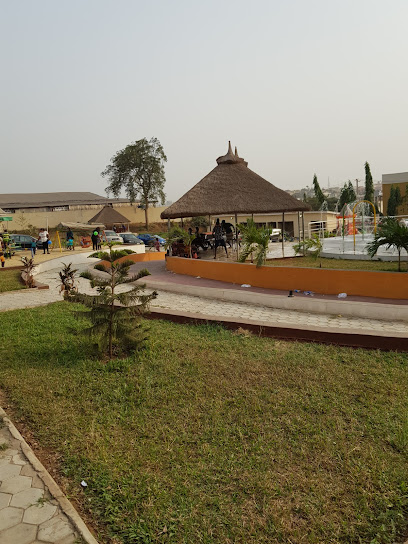
Ndubuisi Park
Explore Ndubuisi Park in Ikeja: A lush oasis perfect for relaxation, family fun, and outdoor activities in the heart of Lagos.
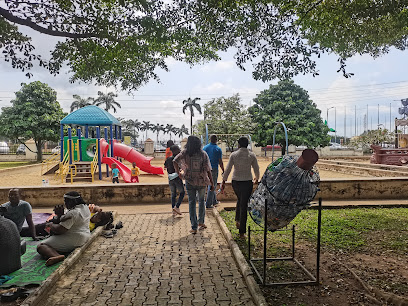
Nature Travels and Tours.
Discover the beauty and adventure of Nigeria with Nature Travels and Tours, your gateway to exploring stunning landscapes and vibrant cultures.
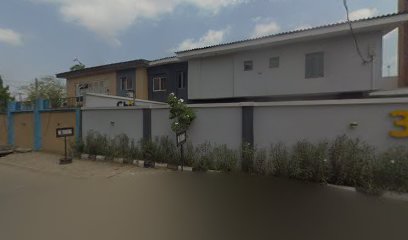
Essential places to dine
Yellow Chilli Restaurant & Bar
Experience authentic African cuisine at Yellow Chilli Restaurant & Bar in Ikeja – where vibrant flavors meet warm hospitality.
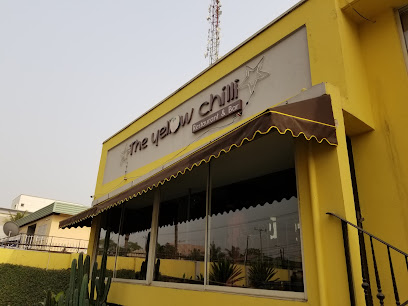
The Place Restaurant, Ikeja GRA
Discover the vibrant flavors of Lagos at The Place Restaurant in Ikeja GRA - where local meets international cuisine in a welcoming setting.
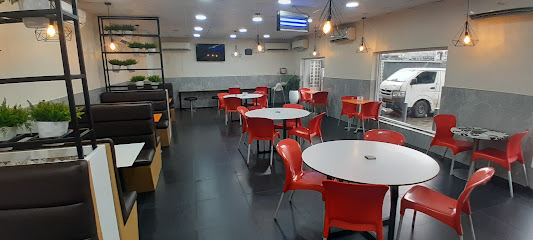
ZEN Garden
Experience authentic Chinese cuisine in a serene atmosphere at ZEN Garden - where every dish tells a story.
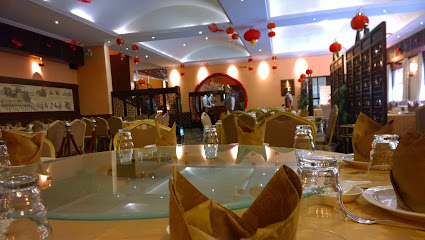
Bungalow Restaurant Ikeja
Experience the vibrant culinary scene at Bungalow Restaurant in Ikeja, where local flavors meet international cuisine in a stylish setting.
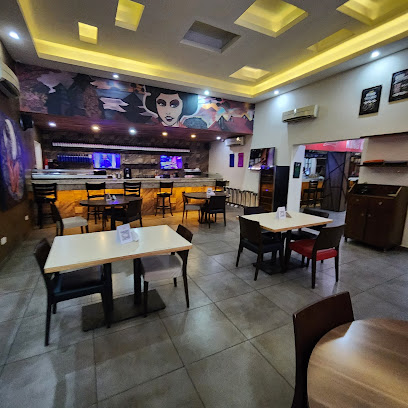
The Orchid Bistro
Discover The Orchid Bistro in Ikeja - where delicious breakfasts meet a vibrant atmosphere in Lagos' culinary scene.
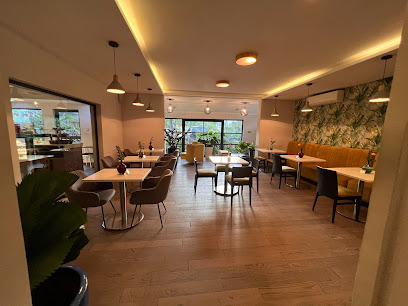
Ocean Basket, Ikeja GRA
Discover exquisite seafood dishes at Ocean Basket in Ikeja GRA – where Mediterranean flavors meet Nigerian hospitality.
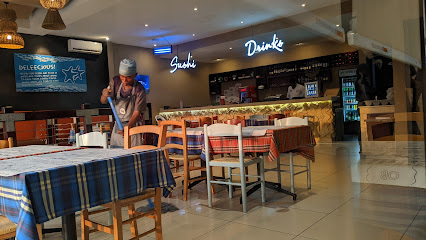
Casper & Gambini's
Discover culinary excellence at Casper & Gambini's in Ikeja - where international flavors meet local charm amidst vibrant mall life.
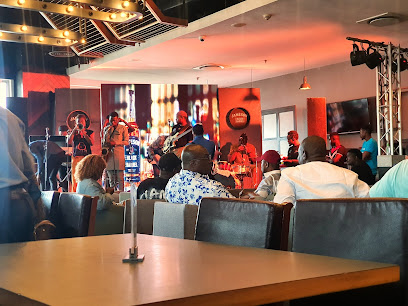
Orchid House Thai Restaurant - Ikeja
Discover the essence of Thailand with authentic dishes at Orchid House Thai Restaurant in Ikeja, Lagos - a must-visit culinary destination.
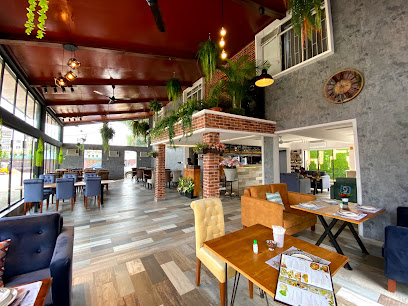
Rhapsody's Ikeja City Mall
Experience the perfect blend of local flavors and international cuisine at Rhapsody's Ikeja City Mall – where culinary excellence meets vibrant ambiance.
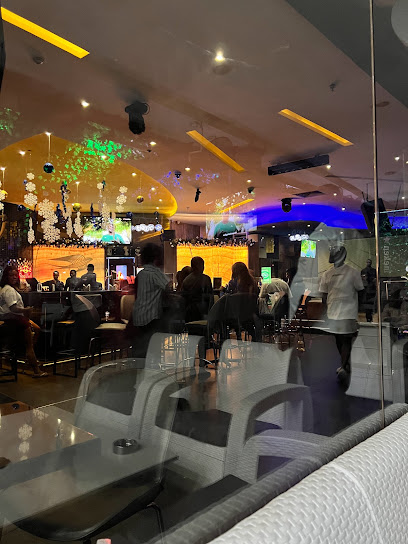
Iyeru Okin Restaurant
Discover authentic Nigerian cuisine at Iyeru Okin Restaurant - a buffet paradise for breakfast lovers in Ikeja GRA, Lagos.
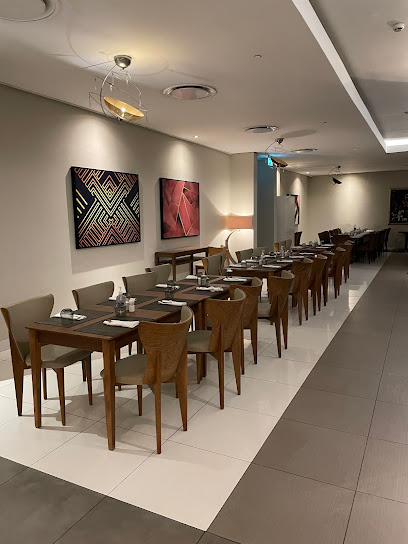
Markets, malls and hidden boutiques
Unique Shopping Mall
Explore the Unique Shopping Mall in Ikeja for a vibrant shopping experience filled with local crafts, delicious dining, and diverse retail options.
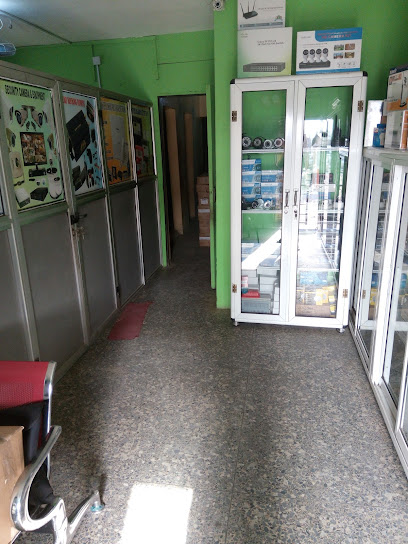
Just Unique
Discover a vibrant shopping experience at Just Unique in Ikeja, Lagos, where fashion meets local culture and unique gifts await.
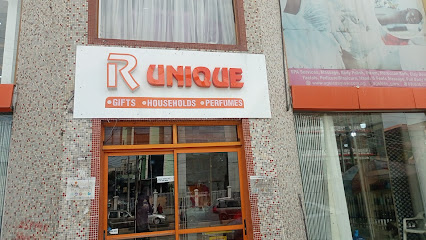
KIKKI CLOTHING , Office wear, dress, skirt, dinner dress, Ikeja boutique, clothing store in Lagos
Explore KIKKI CLOTHING in Ikeja, Lagos, for the latest trends in office wear, dresses, and stylish accessories tailored for the modern woman.
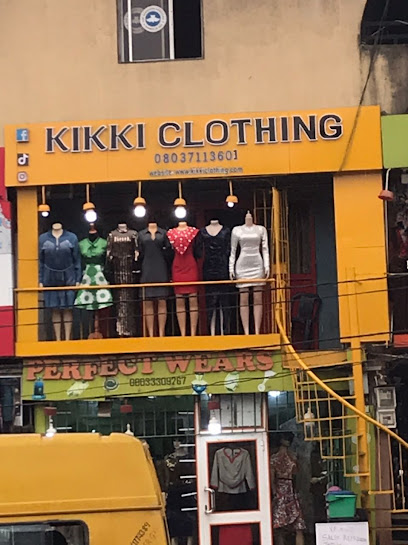
NORIVAL FASHION HOUSE
Explore the exquisite collection at Norival Fashion House, where contemporary style meets African elegance in the heart of Ikeja, Lagos.
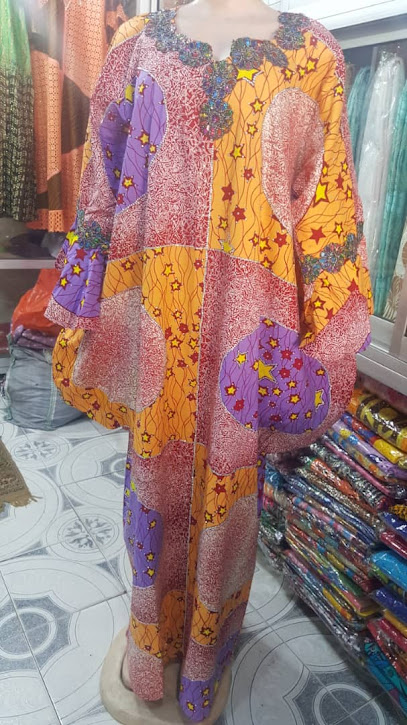
Audacious
Discover Audacious in Lagos: Your ultimate women’s clothing destination for contemporary styles and unique accessories.
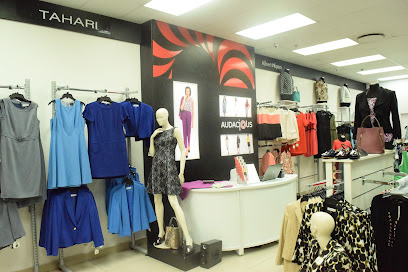
Unique Market
Explore Unique Market in Ikeja for an unforgettable shopping experience featuring stylish footwear, children's clothing, and trendy handbags.
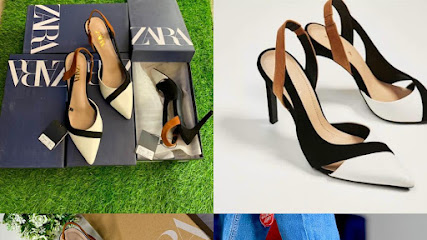
Men's Mart NG
Discover the finest selection of men's clothing and accessories at Men's Mart NG in Lagos, where style meets quality.
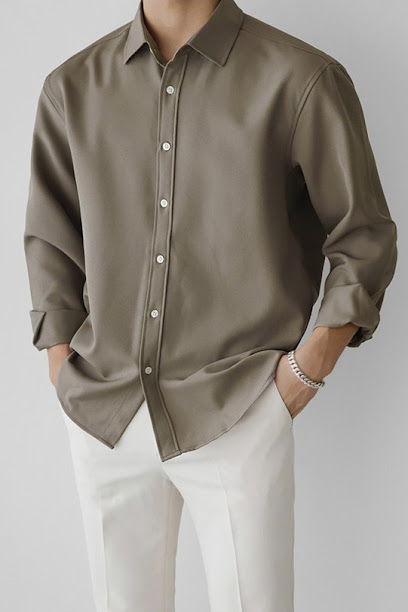
QUICK MART NIGERIA
Shop a Diverse Range of Unique Treasures at Quick Mart Nigeria – Your One-Stop Destination for Fashion, Accessories, and Local Souvenirs.

Unique Store
Explore Unique Store in Ikeja for stylish fashion accessories that blend contemporary trends with traditional Nigerian artistry.
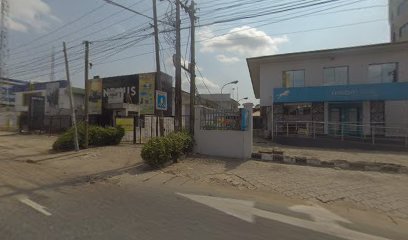
Ovicky Online Shop - Your trusted price friendly online market place.
Explore a variety of affordable household goods, fashion accessories, and health products at Ovicky Online Shop in Ikeja, Lagos.
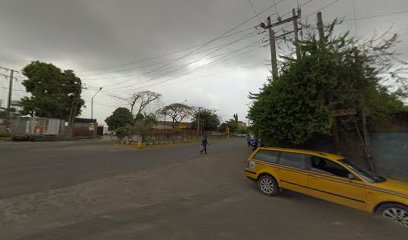
Essential bars & hidden hideouts
House30lounge
Discover the elegance and vibrant nightlife at House30lounge in Ikeja, Lagos, where every night is a celebration of good vibes and great drinks.
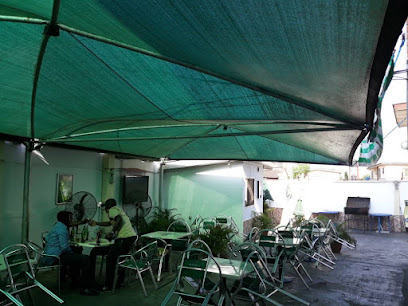
2G1 Club
Dive into the vibrant nightlife of Lagos at 2G1 Club, a premier lounge offering unforgettable experiences with great music and delicious drinks.
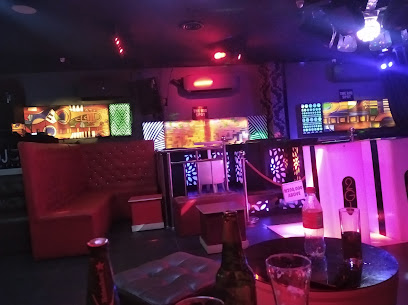
Umbrellas Bar
Experience the vibrant nightlife at Umbrellas Bar in Ikeja, Lagos, where cocktails, culture, and camaraderie come together in a lively setting.
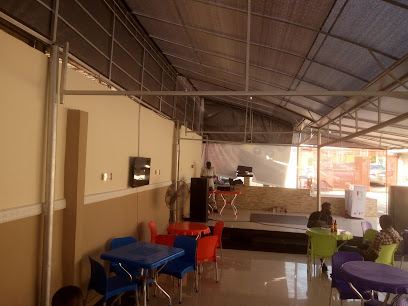
Wow! Bar Lounge Restaurant
Discover the vibrant atmosphere and mouthwatering grilled dishes at Wow! Bar Lounge Restaurant in Ikeja, Lagos.
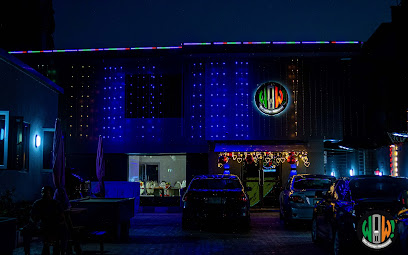
Whispers Bar & Lounge
Discover the perfect blend of relaxation and flavor at Whispers Bar & Lounge in Ikeja, where every hour is happy hour.
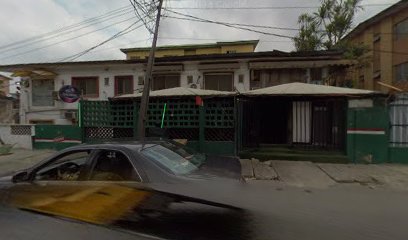
Rbar & Lounge
Experience the vibrant nightlife at Rbar & Lounge in Ikeja, where exquisite cocktails and lively ambiance await you.
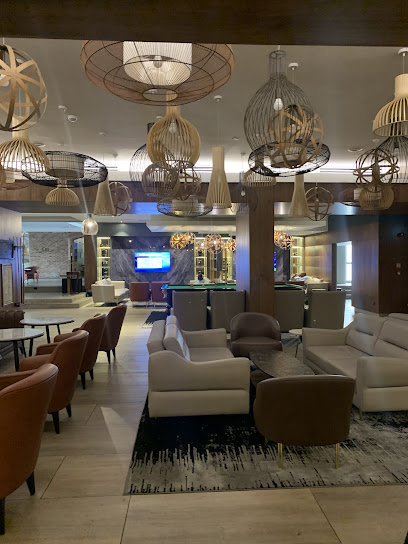
De Place Bar Ikeja
Experience the vibrant nightlife of Ikeja at De Place Bar, where local flavors meet a lively atmosphere in Lagos.
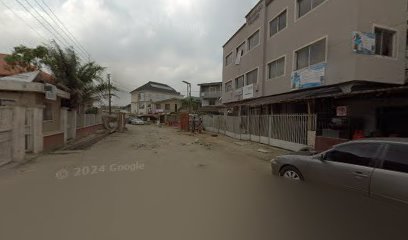
Princess Bar
Discover the rich flavors of wine at Princess Bar in Ikeja, a charming destination for wine lovers and social gatherings.
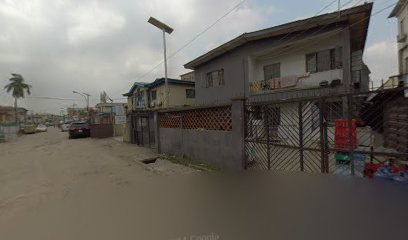
Sophis Cool Spot
Experience the vibrant nightlife at Sophis Cool Spot, a premier bar in Ikeja offering unique cocktails and a lively atmosphere for all.
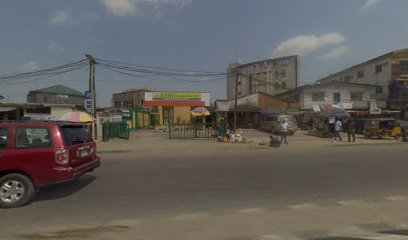
Arewa Cool Spot
Experience the vibrant nightlife and local flavors at Arewa Cool Spot, a cozy bar in the heart of Ikeja, Lagos.
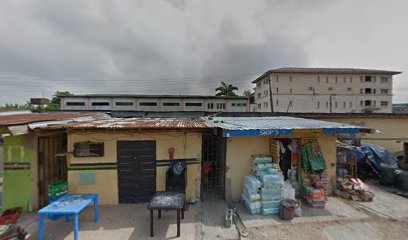
Local Phrases
-
- HelloBawo ni
[bah-woh nee] - GoodbyeOdabo
[oh-dah-boh] - YesBe
[beh] - NoBee
[bee] - Please/You're welcomeAbeg
[ah-beg] - Thank youEse
[eh-seh] - Excuse me/SorryE ma binu
[eh mah bee-noo] - How are you?Bawo ni
[bah-woh nee] - Fine. And you?Dada. Nibo la wa?
[dah-dah. nee-boh lah wah?] - Do you speak English?Sọ Yoruba?
[shaw yoh-roo-bah?] - I don't understandEmi ko mọ
[eh-mee koh moh]
- HelloBawo ni
-
- I'd like to see the menu, pleaseMofi wo iwe menyu, jọ
[moh-fee woh ee-weh meh-nyoo, joh] - I don't eat meatEmi ko je eja
[eh-mee koh jeh eh-jah] - Cheers!Eku ile
[eh-koo ee-leh] - I would like to pay, pleaseMofi si ile, jọ
[moh-fee shee ee-leh, joh]
- I'd like to see the menu, pleaseMofi wo iwe menyu, jọ
-
- Help!Ejo
[eh-joh] - Go away!Lo si kuro!
[loh see koo-roh] - Call the Police!Wole si olopa!
[woh-leh see oh-loh-pah] - Call a doctor!Wole si doctor!
[woh-leh see dohk-tohr] - I'm lostMo ti lo
[moh tee loh] - I'm illMo ti gbe
[moh tee g-beh]
- Help!Ejo
-
- I'd like to buy...Mofi ra...
[moh-fee rah] - I'm just lookingMo nwo eleyi
[moh noh eh-leh-yee] - How much is it?Eyi o dupe?
[eh-yee oh doo-peh] - That's too expensiveO dun bi owo
[oh doon bee oh-woh] - Can you lower the price?Se le gba iku?
[sheh leh g-bah ee-koo]
- I'd like to buy...Mofi ra...
-
- What time is it?Kini oruko igbati?
[kee-nee oh-roo-koh eeg-bah-tee] - It's one o'clockOkan ti wulo
[oh-kahn tee woo-loh] - Half past (10)Aadota (10)
[ah-ah-doh-tah (10)] - MorningAaro
[ah-ah-roh] - AfternoonOwuro
[oh-woo-roh] - EveningAle
[ah-leh] - YesterdayOjo kewa
[oh-joh keh-wah] - TodayOjo naa
[oh-joh nah] - TomorrowOla
[oh-lah] - 1Okan
[oh-kahn] - 2Meji
[meh-jee] - 3Meta
[meh-tah] - 4Merin
[meh-reen] - 5Marun
[mah-roon] - 6Mefa
[meh-fah] - 7Meje
[meh-jeh] - 8Merindinlogun
[meh-reen-deen-loh-goon] - 9Mesan
[meh-shahn] - 10Mewa
[meh-wah]
- What time is it?Kini oruko igbati?
-
- Where's a/the...?Nibo ni...?
[nee-boh nee] - What's the address?Kini adirẹsi?
[kee-nee ah-dee-reh-see] - Can you show me (on the map)?Se le so mi (si iwe ibi)?
[sheh leh soh me (see ee-weh ee-bee)] - When's the next (bus)?Nibo ni o dun (bus)?
[nee-boh nee oh doon (bus)] - A ticket (to ....)Ẹda (si ....)
[eh-dah (see)]
- Where's a/the...?Nibo ni...?
History of Ikeja
-
Ikeja's history dates back to the pre-colonial era when it was primarily inhabited by the Yoruba people. The area served as a significant settlement and was known for its agricultural activities, with the indigenous population engaging in farming and trade. Ikeja's strategic location within the Lagos region made it an essential hub for commerce and governance.
-
With the arrival of British colonial powers in the late 19th century, Ikeja began to evolve. In 1914, Ikeja was designated as the capital of Lagos Colony, which marked a significant shift in its administrative importance. The establishment of government offices and infrastructure during this time laid the groundwork for its future development.
-
During World War II, Ikeja became strategically important as a military base for the British forces. The area was expanded to accommodate military installations, which acted as a training ground and logistical support center for operations in West Africa. This military presence brought about infrastructural development in Ikeja, contributing to its growth.
-
Following Nigeria's independence in 1960, Ikeja continued to thrive as a vital administrative and commercial center. It was during this period that Ikeja became home to various government institutions, educational establishments, and industries, further solidifying its role in the Lagos metropolis.
-
Today, Ikeja is known for its vibrant culture, blending traditional Yoruba customs with contemporary influences. The area hosts numerous cultural festivals, markets, and events that reflect the rich heritage of the Yoruba people. Notable landmarks, such as the Ikeja City Mall and the National Museum Lagos, symbolize the neighborhood's evolution into a modern urban center while still preserving its historical roots.
Ikeja Essentials
-
Ikeja, the capital of Lagos State, is well-connected to other parts of Lagos. From Lagos Island, you can take a taxi, ride-hailing service, or a bus to Ikeja, which typically takes about 30-60 minutes depending on traffic. The nearest airport is Murtala Muhammed International Airport, located in Ikeja itself, making it easily accessible for international travelers. Additionally, the BRT (Bus Rapid Transit) system provides a reliable option for commuting from various parts of the city, including Victoria Island and Lekki.
-
Ikeja is relatively easy to navigate with several options available. Public buses and the BRT system are affordable and effective for getting around. Taxis and ride-hailing services like Uber and Bolt are widely used, offering convenient door-to-door service. For a more local experience, consider using motorcycle taxis (okadas), but ensure you wear a helmet. Bicycles are not commonly used, but walking is feasible in some areas, especially around shopping centers and parks.
-
Ikeja is generally safe for tourists, but standard precautions should be taken. Areas like Allen Avenue and Ikeja City Mall are popular and typically safe. However, avoid secluded areas, especially at night, and be cautious in places known for petty crime, such as the markets. Be vigilant with your belongings in crowded places and refrain from displaying valuables. It's advisable to consult locals or your hotel for specific safety tips.
-
In case of emergencies, dial 112 for police assistance or 07082810000 for medical emergencies. It's advisable to have local emergency numbers saved on your phone. The major hospitals in Ikeja include Lagos State University Teaching Hospital (LASUTH) and Reddington Hospital. Ensure you have travel insurance that covers medical emergencies. Local pharmacies are available for minor health issues, but for serious conditions, seek professional medical help immediately.
-
Fashion: Do dress modestly, especially in religious settings; avoid overly revealing clothing. Religion: Do respect local customs and traditions; always ask for permission before photographing people, particularly in religious sites. Public Transport: Do offer your seat to the elderly and pregnant women; don't eat or drink on public transport. Greetings: Do greet with a handshake and a smile; don’t be overly familiar or use first names unless invited. Eating & Drinking: Do try local dishes like jollof rice and suya; don’t refuse food offerings as it may be considered impolite.
-
To experience Ikeja like a local, visit the Ikeja City Mall for shopping and dining. Explore the local markets, such as the Computer Village for electronics and the Ikeja Shopping Mall for a variety of goods. Engage with locals to learn about their culture and history; they are generally friendly and welcoming. Don’t miss visiting the National Museum Lagos for insights into Nigeria’s rich heritage. For a taste of local nightlife, check out the bars and clubs along Allen Avenue.
Nearby Cities to Ikeja
-
Things To Do in Abeokuta
-
Things To Do in Porto-Novo
-
Things To Do in Cotonou
-
Things To Do in Ibadan
-
Things To Do in Ouidah
-
Things To Do in Lokossa
-
Things To Do in Aneho
-
Things To Do in Lomé
-
Things To Do in Notse
-
Things To Do in Benin City
-
Things To Do in Atakpamé
-
Things To Do in Warri
-
Things To Do in Kpalimé
-
Things To Do in Ho
-
Things To Do in Asaba







